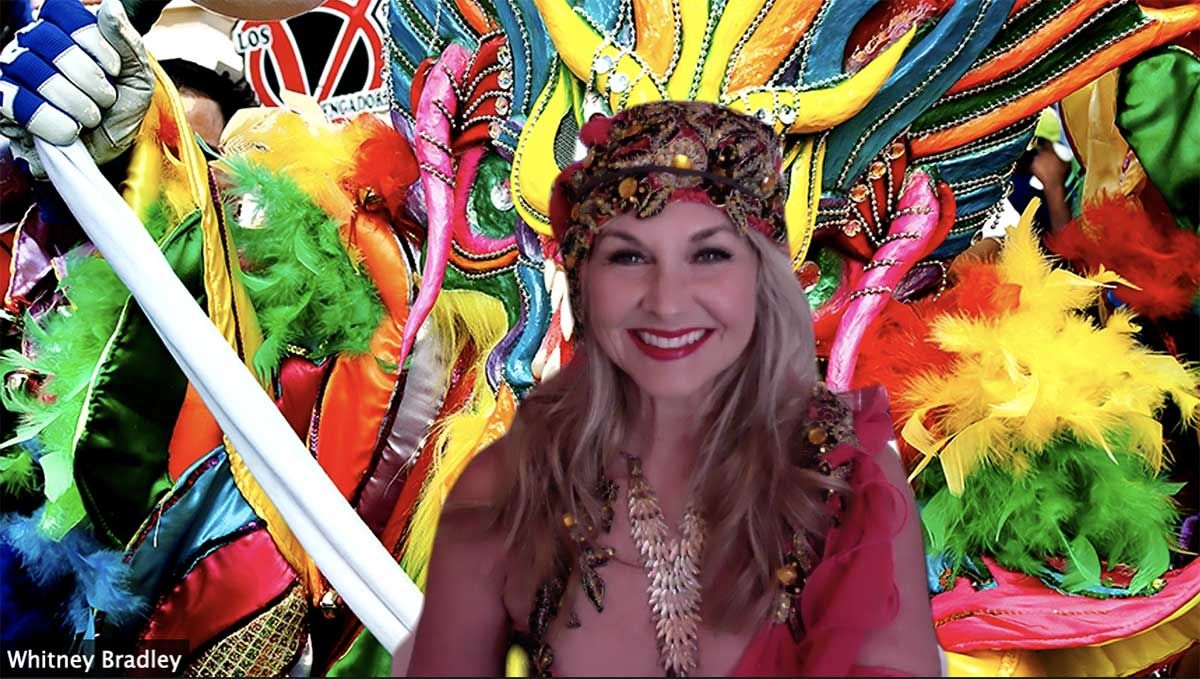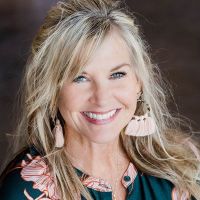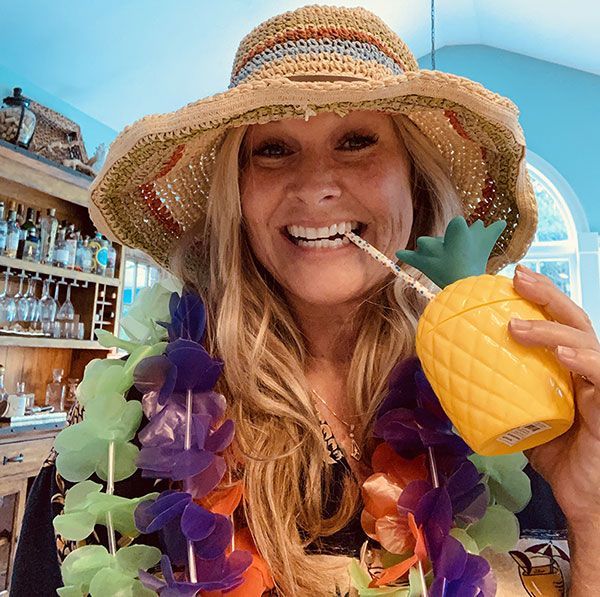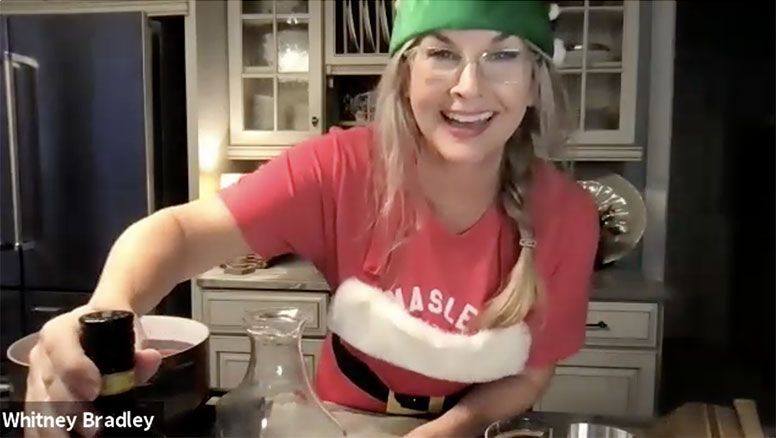
5 Things You Need To Know To Successfully Run a Live Virtual Event

-
Website:
-
Contact:
This email address is being protected from spambots. You need JavaScript enabled to view it.
—Published in Authority Magazine December 14, 2020
As a part of Authority Magazine’s series about “5 Things You Need To Know To Successfully Run a Live Virtual Event”, I had the pleasure of interviewing Whitney Bradley, Vice President and Director of Marketing, Retreats Resources.
Whitney’s combination of right brain/left brain packs a big punch when it comes to bringing a creative edge to everything at Retreats Resources. Her background of marketing and event planning spans 20+ years and includes past clients such as Verizon, Daimler Chrysler/Mercedes, Michelin, BMW Manufacturing Corporation, First Robotics, Bi-Lo grocery stores, BMW Motorrad, and the Homepoint (Music City) Bowl.
She’s done everything from planning over 200 multi-cultural galas and events, to formerly hosting a college football television show. She is a TEDx salon curator for her city, fronts her contemporary jazz/R&B band, Groove Planet, and is a singer/songwriter with over 30 years of theater and television production experience.
Thank you so much for joining us in this interview series! Before we dive in, our readers would love to learn a bit more about you. Can you tell us a bit about your “childhood backstory”?
I grew up in the South, raised by three generations of women who were consistently, gracefully, taking care of others and making it look easy. Sunday suppers were full of delicious food and engaging family time, holidays were a time to bake and knit and gift from the heart. From my Mom, my grandmothers, and my (yes, seriously) two great-grandmothers, I learned not only the cooking and serving skills, but the finer points of making people feel at ease inside your home that is paramount to true hospitality.
Can you tell us the story of what led you to this particular career path?
I had been an event planner for various advertising agencies for quite a few years, when a friend (and former band mate) called to ask me if I was available to not only run the event registration desk and be a ‘girl Friday’ to the company owner, but also to be the entertainment and sing with his accompaniment during the crux of the event. The company owner and I hit it off immediately, and she began to use me as a freelancer to help onsite with her events all throughout the Southeast.
Can you share a story about the funniest mistake you made when you were first starting? Can you tell us what lesson you learned from that?
I was the ‘creative one’ (read: theater girl) of a duo in the event planning department of an advertising agency whose primary client was Verizon Wireless. Each year, we planned and executed the regional ‘sales kickoffs’ which were a big deal for the company.
One year the theme was something like “One” or “You’re the One.” Being the theater / dancer / singer that I was, I of course (ha-ha) choreographed a dance to “One (Singular Sensation)” from A Chorus Line. I had been told that there was a new president of that region who would be making his debut during these events.
Into the empty conference room-slash-rehearsal space walked about ten of the top executives at Verizon. I had no idea who anyone was, but began moving them into place so I could start teaching them the dance. One man was definitely in charge. He was very standoffish, spoke loudly, and seemed rather perturbed that he was going to have to do a song and dance number. Initially, I had placed him in the very front at the tip of the “v” formation, but after dealing with his smirks and lack of enthusiasm, I decided to let him off the hook.
I said, “You know what? You don’t look too happy up here. Would you like it better to be at the back?”
He said yes, so I switched him with the very tall, lanky guy who was cracking jokes with everyone. I called him Sasquatch, Magic Johnson, the Jolly Green Giant, and even more names that first rehearsal. He was affable and kept laughing while he willingly learned the dance. At the end of the hour, he shook my hand and thanked me for my instruction and humor, telling me that it was the first time since he had arrived that someone hadn’t tip-toed around him. Yep, he was the new president of the region. To this day, we remain friends.
I learned two things: that people do indeed remember the way you make them feel, and that even the person in the highest position at a company is no different than anyone else.
Is there a particular book, podcast, or film that made a significant impact on you? Can you share a story or explain why it resonated with you so much?
One of my favorite books is “A Prayer for Owen Meany” by John Irving. It reminds me that we don’t know what all of our strengths and weaknesses really equate to until much later in life. It’s like concentrating on many threads of different colors, until one day at the very end, we see the entire quilt.
Can you please give us your favorite “Life Lesson Quote”? Can you share how that was relevant to you in your life?
Well, it used to be that of my (aforementioned) great-grandmother, Polly, who said: “I don’t worry about anything I can’t control.” And I love that about her, I really do. It made her the most calm, loving person I’ve ever known. But I realize that I don’t (or maybe, can’t) maintain that attitude because if I can’t control it, I DO worry about it. Not that i’m a control freak, I just think that there are a lot of things we have power over if we want it.
So, fast forward to my second favorite quote:
“People will forget what you said, people will forget what you did, but people will never forget how you made them feel.”
— Maya Angelou
The relevance of that quote in my life is that all we have is relationships; to me, they’re the most important gift of any lifetime. I’m not naive enough to think that I’ll always make a good impression on everyone or do the right thing, but for the most part, I want people to feel that they’re better for having known me.
Ok, thank you for that. Let’s now jump to the primary focus of our interview. For the benefit of our readers, can you tell us a bit about your experience organizing events in general?
In preparation for this interview, I looked back over my resume. I began in event planning in the early 1990’s, at the same time I was heavily involved in community theater. My perspective at the time (and it still holds true today), is that every event is a ‘show,’ whether it’s a small board meeting or a multi-day sales kick off with multiple speakers and thousands of attendees. Every event deserves attention to the storyline, the characters, the purpose, and the goal.
I’ve planned over 1,500 events in my career, and until this past year, the majority of them have been live and in person. Product launches, executive retreats, music festivals, trade shows (ugh, just hit me over the head with a blunt instrument), fundraising galas, multi-city car rallies, marathons, forums, local TED salons and conferences, a college football bowl game, Chautauqua festivals, and many more events of all kinds grace the pages of my resume.
Can you tell us a bit about your experience organizing live virtual events? Can you share any interesting stories about them?
In March of 2020, my partner and I were at The Breakers in Palm Beach planning a conference that was to be held in the fall. During that trip, our contact received a flurry of event cancellations that morning in anticipation of things to come. Over the course of about two weeks, our events and incentive travel industry came screeching to a complete halt. My company’s entire schedule of live events (upscale networking events between luxury resort sales reps and corporate and incentive event planners) was put on hold. Many of our customers on both sides of our business were being furloughed indefinitely. Some of our favorite people, the ones who had supported us for over a decade, were suddenly calling to tell us their email addresses would no longer be functional. They didn’t know when, or even if, they would be going back to work. Our hearts broke with theirs. When an entire industry shuts down almost overnight, it leaves one feeling helpless.
But here’s what we knew — we knew that we had strong ties to these people, not just as customers, but as friends. I knew technology, and my partner had personal cell numbers and email addresses. We wrote notecards, we called people at home and spent hours on the phone with them. And then we immediately launched a series of virtual forums, to give our hospitality family a place to connect. To vent. To cry (it really happened, more than once). To ask each other questions, to share information.
At first, the topics were who had lost their jobs or which hotels were closing down, or how to renegotiate contracts or what force majeure clauses could be put into place. But after the initial venting and panic, we found that people just needed a place to feel connected.
We began two virtual live series: 1) Hospitality Hangouts, which were topic-driven, often hosting industry leaders like the executive team from United Airlines about flight conditions, or the leaders at Wynn / Encore Hotels who basically drafted the document which became the standard throughout the hotel industry for COVID cleaning protocols; and 2) Real-Time Retreats, a weekly ‘deep dive’ into the most luxurious, sought-after resorts and hotels in the world. We branded these retreats, one-hour virtual/live ‘tours’ as the place to be each week, and made them enticing and exciting for our attendees by theming each one, asking our participants to dress up, make a cocktail, bring props or create a themed background, and really get into the spirit of the locations we were ‘visiting.’ Many times the hotels award the attendee who goes ‘all-in’ with the theme with a travel package to the hotel.
Real-Time Retreats has taken on a life of its own. Fueled by an intense desire to travel again, a love and/or curiosity of these destinations, and the need to stay connected and have a TON of fun, we are now in our 37th straight week of these virtual events and there is no end in sight. We are booked until the end of February 2021, and plan on continuing these very popular events for as long as we can.

In your opinion, what is an example of a company that has done a fantastic job creating live virtual events? What specifically impresses you? What can one do to replicate that?
I’m not going to give you the answer you probably want here, but one virtual event that stands out to me is John Krasinski’s ‘Some Good News.’ During times when most of the country was in full-on panic mode, he spotlighted stories of hope that sparked a viral tidal wave of viewers. Whether we were fed up with all of the news of the day or just all really, really in need of something hopeful, SGN became my go-to, must-see event for many weeks. Then, as they pulled in major celebrities from all walks of life, they showed just how universal the need to connect and make others feel better was. Is. Always.
We just held our first 3-day conference/showcase in October, themed ‘Family Ties.’ We tried to replicate the ‘feel-good’ features of SGN into a business event by incorporating a mindfulness session, interactive cooking classes during lunch, yoga breaks, and an end-of-day cocktail hour with networking and fun recipes and story time. We sent gift boxes to all of our attendees afterwards. What was the one thread through all of this? These segments were led by, and the gift items were designed by members of our hospitality family. Many were out of work. We supported their ‘side hustles’ and in turn, they added meaningful value to our event.
What are the common mistakes you have seen people make when they try to run a live virtual event? What can be done to avoid those errors?
The most common mistake during virtual events that I see people make is a general lack of preparation and knowledge of the software. Virtual events are not going anywhere anytime soon, so the quicker one can bring themselves up to speed, the better.
For a live hybrid event, the mistakes usually have to do with the assumption that the event is for the live audience only. Poor lighting, poor staging, awkward microphone silence, and not speaking to the cameras (at all) when addressing the audience are the biggest flubs I’ve seen.
Which virtual platform have you found to be most effective to be able to bring everyone together virtually?
I researched over 15 platforms before deciding on the one we chose to host our virtual 3-day showcase. What I found was that there are hundreds of companies joining the virtual event space, and most of them offer the same basic functionalities for online events. However, there is a huge discrepancy between costs and output; I can’t give a recommendation for a single platform because there are myriad events and event goals. I know that the one we chose, ExpoPass, was right for us at the time, for our budget, and for our event parameters. But there are many, many others.
Are there any essential tools or software that you think an event organizer needs to know about?
Yes! A broad knowledge of the ‘plug-in’ software is a must. ExpoPass (as well as others) currently uses Zoom as the live plug-in for their framework. Think of it as the ‘brains’ of your television. The event platform is often the outer framework of the event, like the television screen and frame, allowing the programming to come through.
I also think solid knowledge of basic (virtual) presentational skills is a must, as well as sharing this information with the speakers and presenters who will be a part of your event.
Ok. Thank you for all that. Here is the main question of our discussion. An in-person event can have a certain electric energy. How do you create an engaging and memorable event when everyone is separated and in their own homes? What are the “Five Things You Need To Know To Successfully Run a Live Virtual Event” and why? (Please share a story or example for each.)
1. Your virtual event should be a reflection of your company, just as your in-person event would be. Too many times during virtual live events, companies try to emulate the slickness of the technology rather than reflecting their own company culture.
I help with the marketing for my husband’s insurance agency. I recently attended a virtual conference (whose company shall remain nameless) for an insurance carrier whose entire brand was built on helping the ‘little guy.’ Their website and print collaterals all reflect the engagement of the human touch, those family-centric stock photos that are all warm and fuzzy. Their virtual event, however, started off with a welcome video that rivaled The American Music Awards, with flashing images, somewhat brash pop singers lip-synching to a poorly written cover song, and a used car salesman-like host. It was not indicative of that company at all.
2. Prep your presenters/speakers. You would never let someone walk onto your stage without first having a rehearsal, so why would you do that in the virtual world? Make sure you walk them through a tech rehearsal, allowing them to get to know the platform and software, ask questions, share their thoughts. And give them feedback, too! How do they present themselves? Do they need to change their lighting, move to another room, speak louder? Don’t be afraid to give direction; they, and you, will look better because of it.
Before just about event weekly event we do, I hold a tech rehearsal with our hotel hosts. Even though they may have been on a dozen Zoom calls that week, I want them to know that I want them to look good, and for their presentation to go as flawlessly as possible. I invest as much time as is needed for them to feel confident in their role. Before our multi-day showcase, the tech person from the platform and I recorded training videos for our exhibitors, with numerous instructional emails to support them.
3. Make your attendees/audience feel connected. I can’t say this enough. Welcome them, say their name, comment on something they’re wearing, what they’re doing, where they are, whatever. Just because they’re on the other side of a screen doesn’t mean they’re invisible. If there are too many people to engage personally with, start with a story of what is going on for you in the moment. Let them know that you are a live, thinking, breathing person who just happens to be on the other side of the country from them, but that you know that they are there.
If you’re using a platform that has the capacity, the polling feature is great for this situation. The host can ask the audience to answer some questions in the beginning of the event which makes the audience feel instantly engaged.

4. Be ready with a Plan B. My business partner and I were ready to sign a contract with a virtual events platform that we both thought would be a great solution for what we needed, albeit a more expensive one. The company scheduled their own live virtual event to, guess what? Show everyone all of the capacities, bells and whistles of their software. And what better way for us to know what our participants would experience than to experience it ourselves? Fantastic! We were excited to see everything they could offer.
The morning of the event, we were both logged on and enjoyed the first 30 minutes or so of the event. We were engaged, we were excited, we were texting each other about what a great decision we were about to make. And then, frozen. The keynote speaker froze in mid-sentence, her mouth agog, her hand in the air in a gesture marked in time. Nothing. Nada. We logged out.
It turns out, the company was headquartered in a location that was undergoing a huge storm front, and they lost power. And they never got it back, not for the rest of the day. The next day, they sent an email apologizing for the snafu and stating that they would reschedule in the future.
These things happen. Your keynote speaker’s son broke his leg and she is on her way to the hospital. Your host’s wi-fi is down, or is spotty, and suddenly you lose the feed. You share your screen but can’t get the presentation to play. The guy in the front row of your live audience stands up and blocks the view of the web cam. We’ve all been there. The key is to have a back up plan, before hand, so you don’t freak out under pressure. (Oh, and make sure you ask your virtual event software provider where their backup servers or ‘switches’ are.)
5. Be authentic and be flexible. Everyone wants to believe that every event can be pulled off without a hitch. Most of the time with proper planning, that’s true. But there are beautiful moments that can happen when mistakes occur, when the schedule shifts, when that one person who ran overtime in the rehearsal is now running overtime in the real event and everyone is trying to cut her off but she just won’t stop talking and you’ve got to turn it over to the next session and then, bam. Authenticity.
It was early in the COVID mess, around March or so, when we were at the end of one of our virtual events. The topic that day had been primarily on contracts and clauses and who was losing business and who was still booking. We had heard from a dozen people and were signing off of the event when a woman asked if she could say something. Some people had already left the call, and we were over our hour timeframe, but we said yes, of course she could. She hadn’t said anything during the entire event, but started, “Thank you, Carol and Whitney, for hosting this call today. It’s the first time I’ve laughed in a week. I lost my Mother yesterday to COVID.”
The remaining people on the call didn’t say a word, but I noticed that some covered their mouths, some bowed their heads, some closed their eyes. We thanked her for sharing such an intimate part of her life with us.
Leave space for those special moments of authenticity and vulnerability.
Let’s imagine that someone reading this interview has an idea for a live virtual event that they would like to develop. What are the first few steps that you would recommend that they take?
Ask yourself why you think you need to create a live virtual event in the first place. Have you identified your event goal? Is it something that could be related in another way? If not, then…
See what’s out there. The number of virtual live events has grown exponentially since the spring of 2020, and the numbers will continue to increase. Even if there are dozens of other similar events, find a niche to make yours unique in some way. And remember that a singular topic, or a shorter virtual event, is also a great solution. Think about a TV commercial; it gets its point across in 15–30 seconds, Not every live virtual event has to be epic.
Learn some new tricks. There are a ton of fun and engaging elements that can be added to an event, from live, interactive game shows to karaoke competitions to live virtual scavenger hunts. Add-ons like these can be a much appreciated differentiator (especially if you’re in a not-so-glamorous industry like financial services or, ahem, insurance).
Super. We are nearly done. Here are our final questions. You are a person of great influence. If you could inspire a movement that would bring the most amount of good to the most amount of people, what would that be? You never know what your idea can trigger.
I’d create engaging, informative online sessions and games that would teach kids how to manage money (especially girls). Ellevest focuses on women investors, but I picture something more encompassing that teaches them money management techniques starting in middle school when most girls start babysitting. By the time they’re in high school, they’ve gotten their first job and have no idea how to do basic banking, invest, or make smart decisions about good debt/bad debt.
We are very blessed that some of the biggest names in Business, VC funding, Sports, and Entertainment read this column. Is there a person in the world, or in the US, with whom you would love to have a private breakfast or lunch, and why? He or she might just see this if we tag them.
I’d like to meet the creators of SXSW — Roland Swenson, Nick Barbaro, Louis Jay Meyers, Louis Black. As both an event planner and an C-jazz/R&B artist (who has planned a local jazz festival and a college football bowl game), I’d like to find out what creativity they drew on to produce such a tremendously successful festival that converged the interactive, music, and film industries. it makes my head swim just thinking about it.
